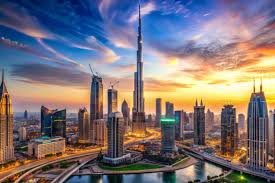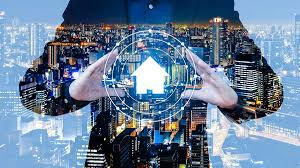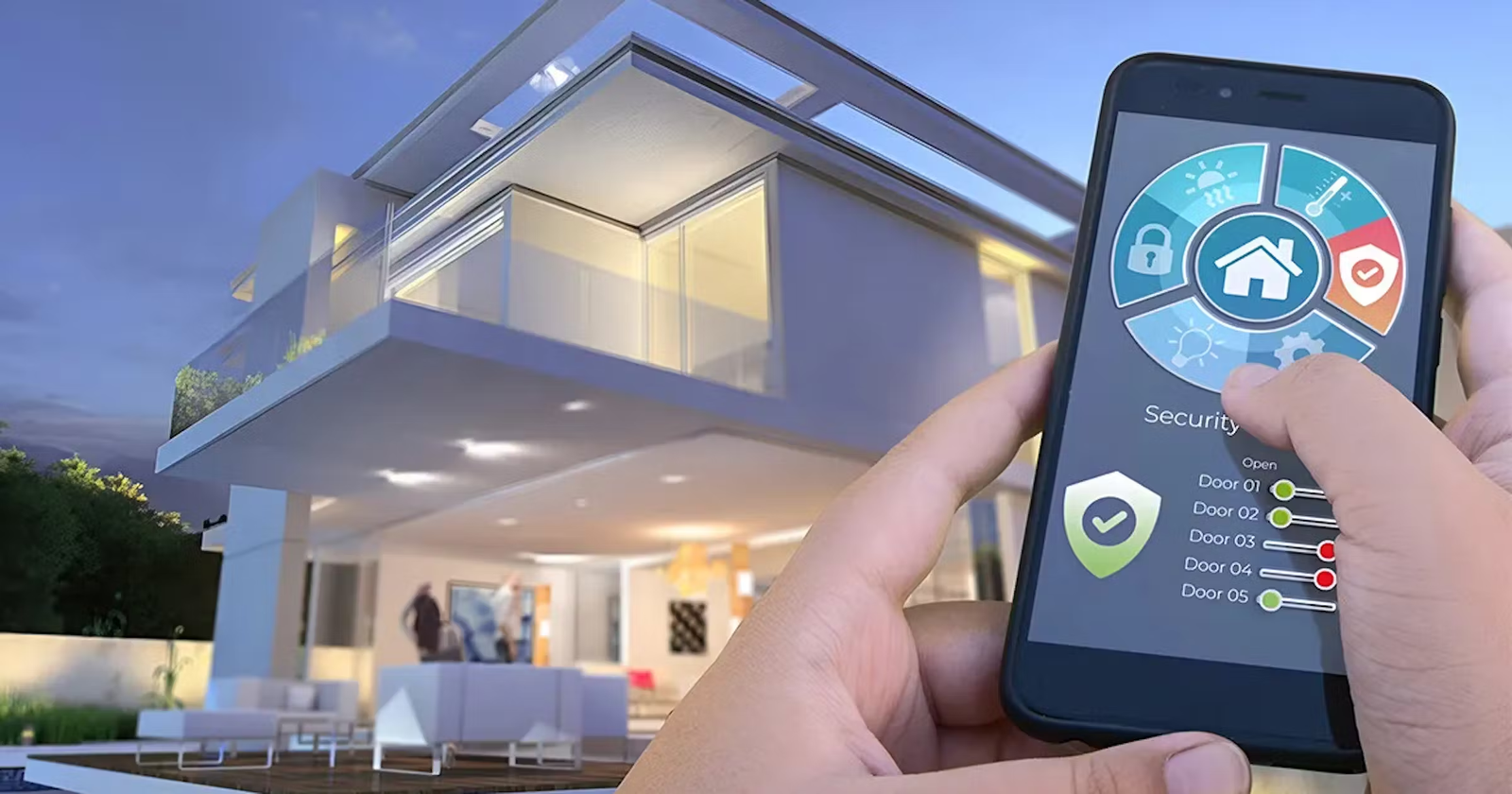Now Reading: 8 Essential Tech Trends Revolutionizing Property Market in 2025
-
01
8 Essential Tech Trends Revolutionizing Property Market in 2025
8 Essential Tech Trends Revolutionizing Property Market in 2025

Table of Contents
Tech Trends Revolutionizing Property Market: The UAE’s real estate market, valued at AED 761 billion ($207 billion) in 2024 with 170,992 transactions (up 40.3%), is a global leader, per X posts. In Q1 2025, 111 sales exceeded AED 10 million ($2.7 million), driven by high-net-worth individuals (HNWIs) and technological innovation. PropTech, growing at a 15% CAGR (2020–2025), transforms how properties are bought, sold, and managed, with Dubai’s Vision 2040 and Net-Zero 2050 goals accelerating adoption.
Prime areas like Palm Jumeirah (7–9% yields) and Downtown Dubai (6.2–7.9% yields) leverage tech for 10–15% value increases. U.S. investors, attracted by no capital gains tax (CGT) and 5–8% price growth, benefit from these trends. This article outlines eight essential tech trends revolutionizing the UAE property market in 2025, with U.S. tax considerations, without external links.
Why Technology Is Reshaping UAE Real Estate?

PropTech, including AI, blockchain, and IoT, enhances efficiency, transparency, and sustainability. The Dubai Land Department’s (DLD) REST platform and 5G rollout support digital transactions, while the Golden Visa program (AED 2 million investment) drives expatriate demand. U.S. investors gain from:
- High ROI: Tech-enabled properties yield 7–11%, with 20–30% off-plan savings.
- Tax Benefits: No UAE CGT; 9% Corporate Tax (CT) above AED 375,000 ($102,000) offset by IRS Form 1116 credits.
- Market Growth: 76,000 units in 2025, with 35% sustainable, per web data.
- Global Appeal: Over 100,000 Golden Visa holders invest, boosting transactions.
Below are eight tech trends shaping the UAE property market in 2025.
8 Essential Tech Trends Revolutionizing Property Market in 2025
1. Blockchain Tokenization of Property Assets
DLD’s Real Estate Tokenization Project (March 2025) enables fractional ownership via blockchain, projecting AED 60 billion in tokenized deals by 2033. Virtual Asset Regulatory Authority (VARA) guidelines support platforms like Pryco Mint, per X posts.
- Impact: U.S. investors can buy $1,000 slices of Dubai Marina properties (6.5–8% yields), lowering entry barriers. Reduces transaction costs by 1–2%.
- U.S. Tax Consideration: Tokenized assets reported on IRS Form 8949 for capital gains; fractional income on Schedule E.
- Action: Use RERA-registered brokers for VARA-compliant tokenized investments in Business Bay.
2. AI-Driven Predictive Analytics for Investments

AI tools, adopted by 90% of real estate firms, analyze market trends and property data for accurate valuations and demand forecasting, per web data. Platforms like Property Finder leverage AI for lead qualification, per X posts.
- Impact: Enhances ROI in JVC (8–10% yields) by identifying high-growth areas; reduces risk by 20%.
- U.S. Tax Consideration: AI software costs deductible on IRS Schedule C or E; report rental income on Form 1040.
- Action: Partner with Emaar, using AI platforms for off-plan purchases in Dubai Creek Harbour.
3. Virtual and Augmented Reality Property Tours
VR/AR, used by 30% of Dubai developers, offers immersive virtual tours, saving 50% in viewing time. DLD’s VR Real Estate Platform recorded $1 billion in sales, per web data.
- Impact: U.S. investors explore Downtown Dubai properties (6.2–7.9% yields) remotely, boosting cross-border sales by 15%.
- U.S. Tax Consideration: VR/AR marketing costs deductible on IRS Schedule E; report assets over $50,000 on Form 8938.
- Action: Engage Nakheel for VR tours of Palm Jumeirah villas, verifying DLD listings.
4. IoT-Enabled Smart Home Systems
IoT devices, in 40% of new villas, automate lighting, security, and energy, cutting costs by 20–30%, per 6Wresearch. Dubai Marina properties feature AI-powered gyms and IoT pools, per web data.
- Impact: Increases resale value by 10–15% in Dubai Hills Estate (5–8% yields); attracts 18% higher rental demand.
- U.S. Tax Consideration: IoT installation costs deductible on IRS Schedule E; energy credits via Form 5695.
- Action: Invest in DAMAC’s IoT-equipped residences, ensuring RERA tech certifications.
5. Smart Contracts for Streamlined Transactions
Blockchain-based smart contracts, used in 10% of 2025 transactions, automate agreements, reducing processing time by 70%, per web data. DLD’s REST platform supports this, per X posts.
- Impact: Speeds up off-plan purchases in Dubai South (7–8% yields), cutting legal fees by 1%.
- U.S. Tax Consideration: Legal costs deductible on IRS Schedule E; report gains on Form 8949.
- Action: Use Omniyat’s smart contract platforms for Jumeirah Islands purchases, verifying DLD compliance.
6. Green Building Technologies and Sustainability
LEED-certified buildings, 35% of new offices, align with Net-Zero 2050, featuring solar panels and smart thermostats, per web data. The Sustainable City leads with 40% utility savings.
- Impact: Boosts property values by 12% in Dubai Harbour (6–8% yields); 35% of transactions are sustainable.
- U.S. Tax Consideration: Green upgrades qualify for IRS Form 5695 credits; rental deductions on Schedule E.
- Action: Buy Emaar’s green-certified villas in Dubai Silicon Oasis, ensuring Green Building Regulation adherence.
7. Drone Technology for Property Insights
Drones, used by 20% of developers, provide aerial views and maintenance inspections, enhancing marketing by 30%, per web data. Emaar employs drones for Dubai Creek Harbour projects.
- Impact: Improves buyer confidence in Palm Jumeirah (7–9% yields), reducing inspection costs by 25%.
- U.S. Tax Consideration: Drone service costs deductible on IRS Schedule E; report assets on Form 8938.
- Action: Select RERA-registered developers like Nakheel using drones for JVC properties.
8. Mobile-Optimized Real Estate Platforms

Over 60% of property searches occur on mobile devices, with platforms like Bayut offering e-signatures and apps, per web data. Transaction volumes via mobile rose 25% in 2024.
- Impact: Simplifies purchases in Business Bay (6–8% yields) for U.S. investors, increasing deal speed by 20%.
- U.S. Tax Consideration: Platform fees deductible on IRS Schedule E; report rental income on Form 1040.
- Action: Use Property Finder’s mobile app for DAMAC off-plan deals, ensuring RERA verification.
Key Considerations for U.S. Investors
- Risks:
- Oversupply: 76,000 units in 2025 may depress non-prime prices by 10–15%, but tech-enhanced properties remain resilient.
- Tech Costs: PropTech adds 2–5% to costs, offset by higher yields.
- Market Correction: Fitch predicts 10% non-prime price drops by 2026, mitigated by 4.4% GDP growth.
- Tax Compliance: Report UAE income on IRS Form 1040, with Form 1116 for CT credits, Form 8938 for assets over $50,000, and FinCEN Form 114 for accounts over $10,000. UAE’s 5% VAT on commercial properties and 9% CT apply above AED 375,000.
- Regulatory Compliance: AML laws and RERA require KYC; fines up to AED 500,000 for non-compliance. Verify blockchain and IoT systems with DLD.
- Currency Stability: AED pegged at 1 USD = 3.67 minimizes exchange risk.
Conclusion
In 2025, the UAE’s real estate market, led by Dubai, thrives on PropTech innovations like blockchain tokenization, AI analytics, VR/AR tours, IoT smart homes, smart contracts, green tech, drones, and mobile platforms. These trends drive 7–11% yields and 10–15% value growth in prime areas like Palm Jumeirah and Downtown Dubai, outpacing U.S. markets (4–6%). U.S. investors, leveraging no UAE CGT, Golden Visa eligibility, and IRS deductions, can maximize returns by partnering with RERA-registered developers (Emaar, DAMAC, Nakheel) and ensuring compliance. As the UAE advances toward Vision 2040, these tech trends solidify its position as a global real estate and innovation hub. watch more





















